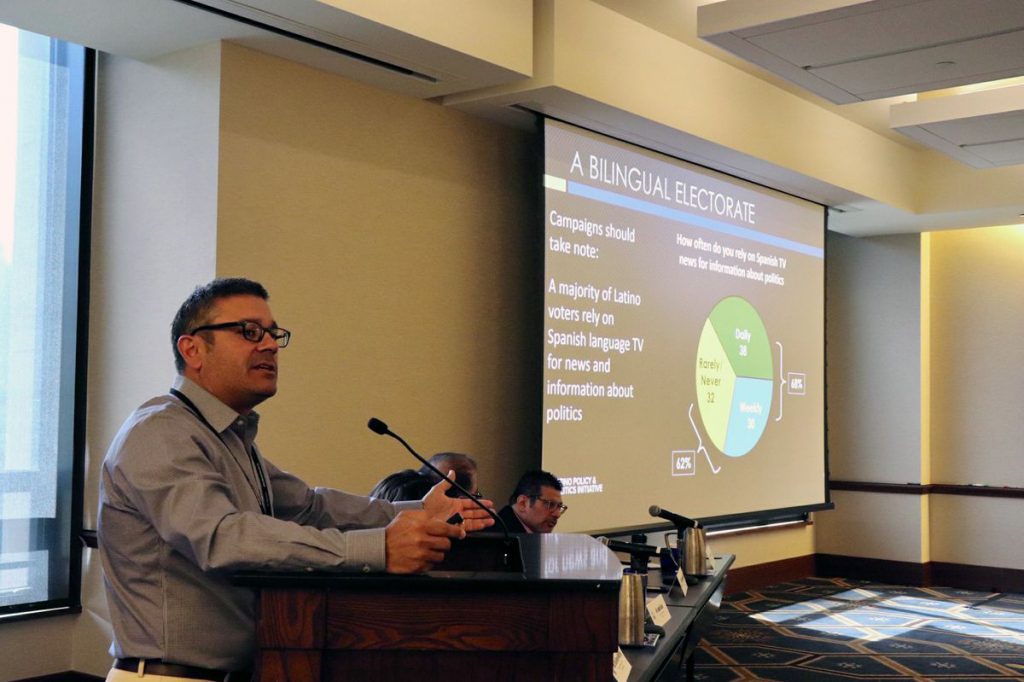Summary:
The conference, which was held Aug. 16–17, was hosted by the two organizations along with Arizona State University’s Center on Latina/os and American Politics Research.
One of the country’s fastest-growing states, Arizona will be “the marquee battleground state in 2020,” said LPPI faculty director Matt Barreto, a professor of political science and Chicana and Chicano studies. The number of eligible Latino voters will be at a record high and the bilingual electorate will be a driving force in the campaign, he said.
During workshops, conference participants explored demographic changes in the Latino community, the importance of state budget realities, lessons learned from former elected officials, and the essential role of accurate data in crafting policy.
Research- and evidence-based policymaking was a recurring theme throughout the two days. Edward Vargas, a professor in the School of Transborder Studies at Arizona State University, shared current polling trends, strategies on how to analyze this data to determine its legitimacy, and best practices on using the numbers to build support among stakeholders.
The conference provided the 13 members of Arizona’s Latino caucus with the opportunity to exchange ideas, build a support network, and learn how to incorporate research into their policymaking.
During the gathering’s second day, legislators applied the lessons they learned at a practicum led by Sonja Diaz, executive director of the Latino Policy and Politics Institute, and Fernando Torres-Gil, director of the UCLA Center for Policy Research on Aging and professor of social welfare and public policy. The skill-building exercise allowed the legislators to incorporate polling data and effective messaging to develop sound legislative policy ideas.

